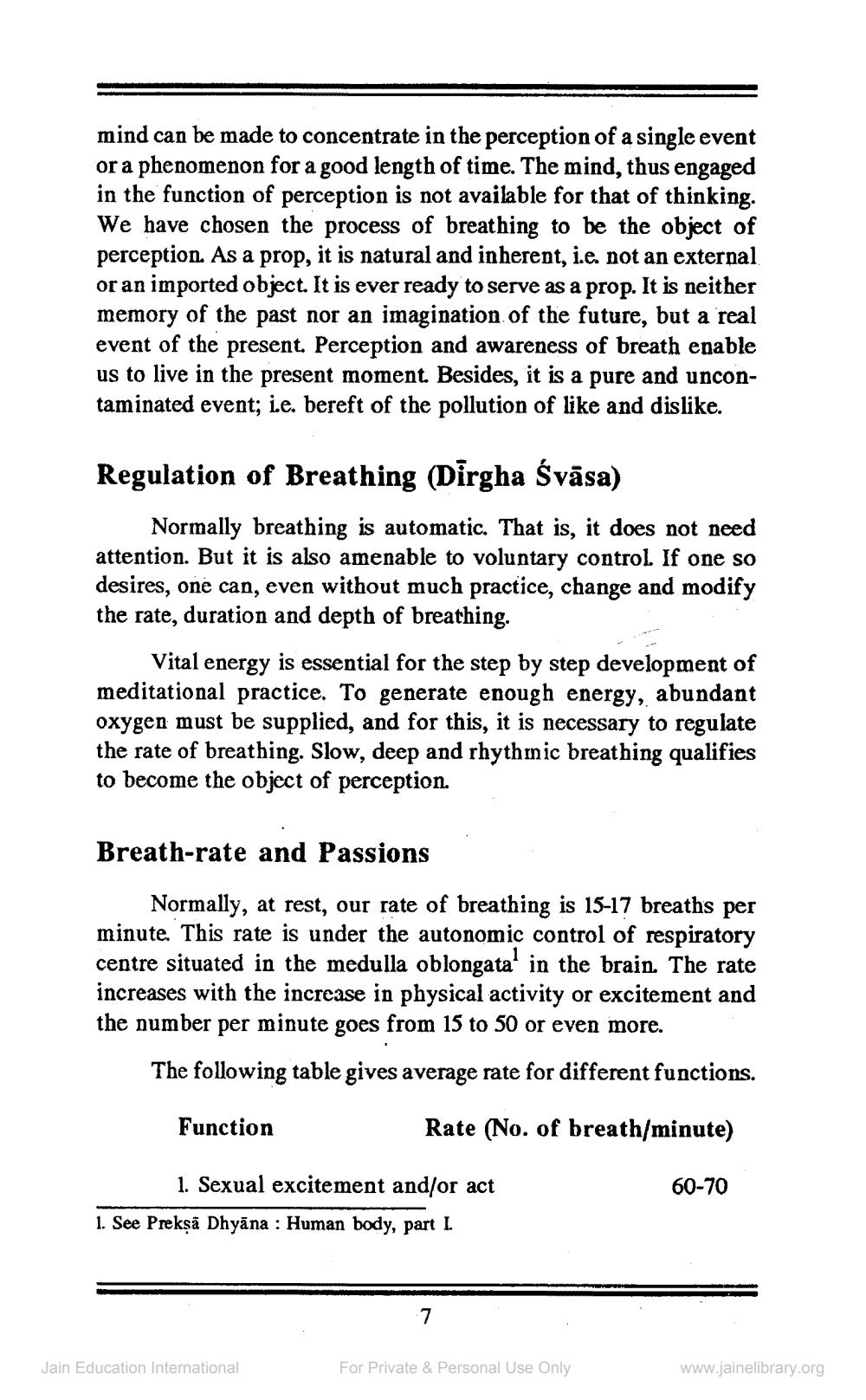________________
mind can be made to concentrate in the perception of a single event or a phenomenon for a good length of time. The mind, thus engaged in the function of perception is not available for that of thinking. We have chosen the process of breathing to be the object of perception. As a prop, it is natural and inherent, i.e. not an external or an imported object. It is ever ready to serve as a prop. It is neither memory of the past nor an imagination of the future, but a real event of the present. Perception and awareness of breath enable us to live in the present moment. Besides, it is a pure and uncontaminated event; i.e. bereft of the pollution of like and dislike.
Regulation of Breathing (Dirgha Śvāsa)
Normally breathing is automatic. That is, it does not need attention. But it is also amenable to voluntary control. If one so desires, one can, even without much practice, change and modify the rate, duration and depth of breathing.
Vital energy is essential for the step by step development of meditational practice. To generate enough energy, abundant oxygen must be supplied, and for this, it is necessary to regulate the rate of breathing. Slow, deep and rhythmic breathing qualifies to become the object of perception.
Breath-rate and Passions
Normally, at rest, our rate of breathing is 15-17 breaths per minute. This rate is under the autonomic control of respiratory centre situated in the medulla oblongata' in the brain. The rate increases with the increase in physical activity or excitement and the number per minute goes from 15 to 50 or even more.
The following table gives average rate for different functions.
Function
Rate (No. of breath/minute)
60-70
1. Sexual excitement and/or act 1. See Prekṣā Dhyāna : Human body, part I
1
Jain Education International
For Private & Personal Use Only
www.jainelibrary.org




